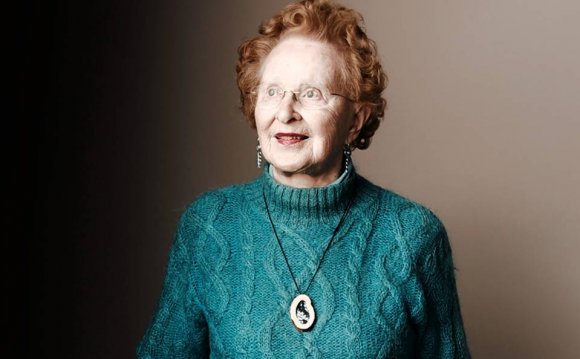
Innovative products for elderly
The world’s population is the aging process at a rate never ever seen before, as well as the World Health Organization claims that by 2050 two billion people will be avove the age of 60.
Longer lifespans can be attributed in part into improvement brand new technologies. But ironically, the individuals whom develop brand-new technologies rarely target innovations that could make day-to-day life simpler when it comes to senior.
Barbara Beskind is an exclusion. The 91-year-old Ms. Beskind has been creating products because the Great Depression and is the owner of a few patents on expansive gear for helping children improve their stability. Today a part-time designer in the renowned Silicon Valley design firm IDEO, Ms. Beskind remains coming up with some ideas plus in the woman free time tends to make equipment and gadgets on her behalf buddies.
“As a designer, there’s always this dilemma, ” Ms. Beskind claims. “Do we keep this idea to myself until I'm able to discover a manufacturer? Or do we unveil these specific things, and provide away the shop? Well, I’m 91 today. We don’t have the time or cash to wait patiently around getting patents.”
Ms. Beskind talked into Wall Street Journal about technological innovations she believes could help seniors. Here are modified excerpts:
A far better walker
WSJ: Have you got any some ideas for products for the elderly that don’t exist today?
MS. BESKIND: How about a computer device that can hold people from fracturing a hip? I would personally be thinking about air bags that may be worn. We handled a prototype, with five sizes of hair curlers which come out of a waistband. But i possibly couldn’t get a power source that could inflate all of them quickly adequate.
I’d additionally like to see a new inclusion into telephone. These days, you have volume control regarding the receiver. Might know about have is rate control. I have a message on device, in addition they leave a 13-digit telephone number to call back. I will be hearing, and I also need grab a pen, and often individuals talk therefore fast. Slowing down emails would be great.
Also, many people just who take care of the elderly come from other countries and speak just rudimentary English. For those who tend to be ill and bedridden, it may be extremely irritating. We have to have translation technology, a tool where you talk engrossed in one single language and it also happens in another.
WSJ: Are there products for seniors out today you think could be much better?
MS. BESKIND: I’m worried about seniors maintaining good stability. We want dynamic walkers. The standard walkers encourage bad position and balance dilemmas. Men and women slim on walkers. There’s a need for that, but there’s additionally a necessity to stand upright and have now a dynamic gait.
I personally use walking sticks that We created myself. The bottoms associated with sticks have actually rockers, like rocking seats, instead of a cane-tip. They offer myself a push-off. it is just like drifting. You notice, a walker only signals that you are old or disabled or dysfunctional. My walking sticks are modified ski poles. When folks see me personally, they ask if I’m headed into the slopes.
Higher-tech spectacles
WSJ: do you consider you can design better hearing aids for older people?
MS BESKIND: As a detailed observer of elders who require reading support, i believe there needs to be something that might be managed externally. We envision a simple surgical implant behind each ear—perhaps a conductor or electrode—that would obtain indicators from an external device that could be worn in a pants pocket or on a retractable cord pinned to [clothing] textile.
Control for back ground sound and close discussion tones, pitch, etc., could possibly be refined by those experienced in the field. There would be no vexation when resting on one part, and considering that the hearing aid wouldn’t be eliminated at night, there would be no danger of anyone lacking a crisis call or fire.
WSJ: Any tips for much better eyeglasses?
MS BESKIND: I’d want to see a digital camera mounted on the connection of spectacles. I’m lawfully blind, myself. A camera could offer improved aesthetic precision that contacts don’t give. A camera could help with peripheral eyesight. Also, how about a photo-identity [feature] for those who tend to be approaching? And voice-recognition technology? Political leaders might want this too!
WSJ: What is your opinion of the flexibility scooters that many the elderly use these times?
MS BESKIND: if you'd like it, put it to use. But there’s already been a huge advertising campaign for many people who don’t actually need them. The scooters are utilized all too often. Attempt to keep your balance and your circulation. Don’t prematurely [opt for a scooter]. These scooters don’t keep up your physical health.
WSJ: The trend nowadays is to place sensors inside health products and orthopedic equipment, sensors that gather information and deliver it to medical practioners and family. Is it a notion that the elderly tend to be comfortable with?
MS BESKIND: It just is dependent upon anyone. Most of the time, baby boomers are going to be quicker to simply accept technology as an answer than will people in my age-group. But something that really helps—say, technology that may deliver information to doctors—is probably be easily acknowledged by everyone else.













